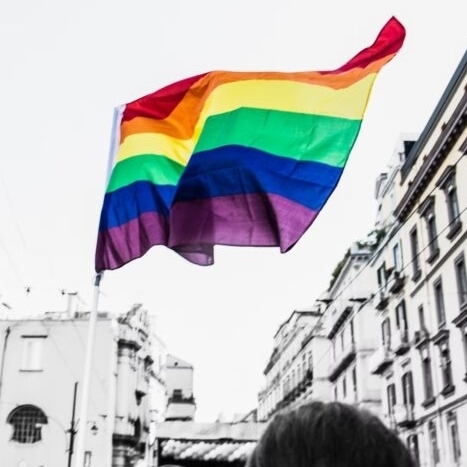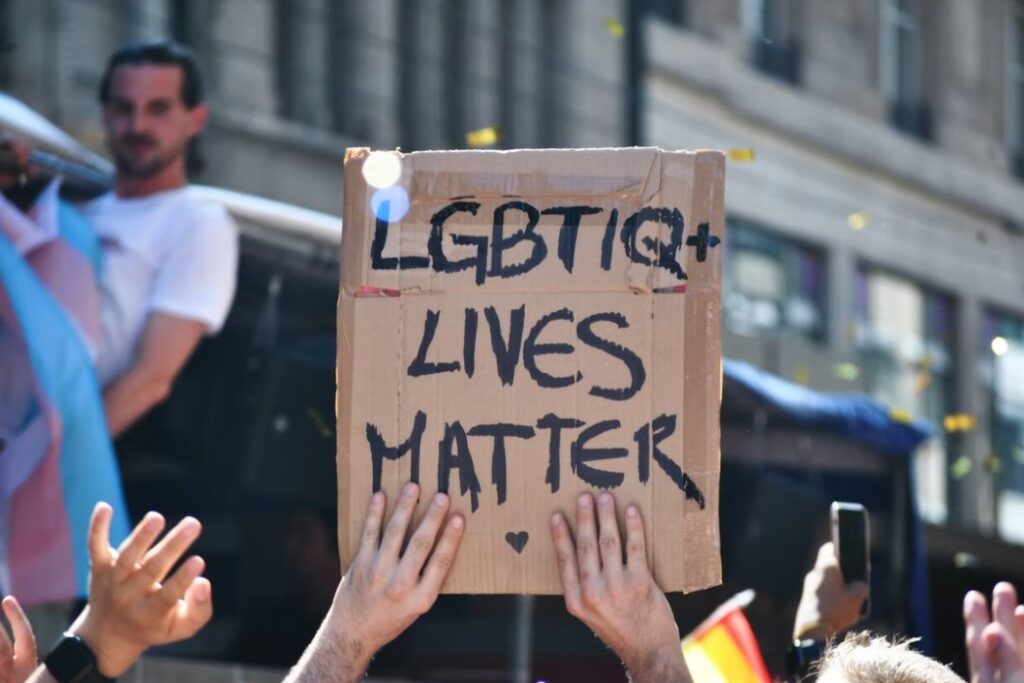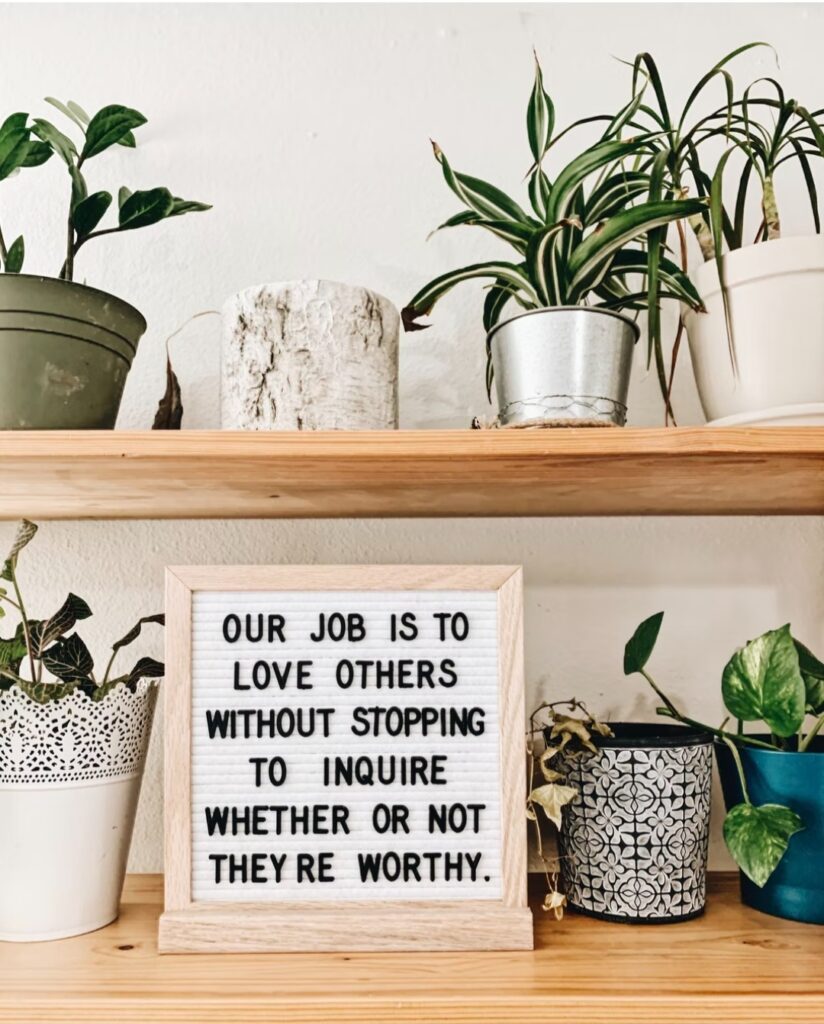LGBTQ+ -What To Do?

Dear reader,
As I’m sure you know, last month was pride month. I was hoping to get this post done by June, but now is as good a time as any to pitch in my two cents worth about this complicated and controversial topic.
I hope, wonderful people, that you didn’t come here looking for all the answers. I have a few, most of which are just thoughts and ideas, but this post is mostly just me trying to figure things out, processing ideas with words in a post. There’s a reason there’s a question mark at the end of the title.
To be honest, I’ve wanted to write this post for a while, but it always felt like (and still does) it was too complicated for me, a bit above my place to write about it.
I don’t know everything about LGBTQ+. I don’t recognize the different flags, understand all the sexualities, or know all of the terms. Please be patient. I’m still learning.
Learning, yes, learning. Somehow, it feels like disloyalty, or betrayal, to learn about LGBTQ+, to even be curious, to hang out with them. Disloyalty to what? I don’t know. Maybe my conservative Christian upbringing? I’m still a strong Christian, don’t get me wrong, and I tend to lean conservative, but it almost feels wrong to listen to the other side…
That’s the problem, I think, with the state of affairs – no one is listening. They’re just shouting.
The far right is shouting hate and abuse, the left are waving their rainbow flags, shouting about homophobia and transphobia, while heaping their share of abuse. Those who want to have a conversation are either shouted down, or are too afraid of offending anyone to say anything at all. We are On The Fence all too often. I’ve been on the fence about this whole topic.
Homosexuality is wrong, Scripture is proof enough of that for me. I’ll admit, at times, I wonder why it’s such a big deal, but I have to trust that God’s way is always best, and is meant for our good.
But how do I tell my gay friends this? How do I disapprove and look down on a happy, otherwise, healthy, relationship, without being another hater? Is my silence enough, or is that me just being lukewarm? Should I be heartbroken for them? What is my “proper” response? How would Christ respond?
I don’t know. That is, at its core, one of the reasons why I’m writing this post. Because I don’t know.
Being against LGBTQ+ was so much easier before one of my best friends came out of the closet, and before I hung out with people in that community, talked to them, and seen how broken and hurt they are. Things are so black and white when the world is neatly divided into us vs them, but that’s not the way it is.

The world is not straight vs gay, cisgender vs transgender, no matter what people would have you believe. The world is just a bunch of broken, sinful, people, who, for the most part, are just doing the best they can. We’re all just people (even the people who think they’re animals) in need of Jesus.
There has to be a middle ground between hatred and total approval. We need a better option, one where we love and have compassion without rebelling against God’s design. – But what does that look like?
Again, I don’t really know. But I have a few ideas.
To start, I think the church needs to have more, and better, conversations about LGBTQ+. The Church as a whole seems to have three stances on it: hate, silence, or acceptance (to the point of having lesbian pastors) – and neither of these helps anyone. We are called to love our neighbor as ourselves, and as Christ loved us, not to hate and shame and abuse them. We are also told to speak the truth in love, and pursue holiness.
I don’t know about you, but in my church, we rarely talk about LGBTQ+. However, I found a sermon series from a sister church about transgenderism (watch part one and part two), which deeply impacted me: I want to have more conversations like that. It doesn’t do anyone any good to pretend that people aren’t gay or don’t struggle with gender disphoria. By doing so, we miss out on telling others of the crazy big love of our savior and his salvation, and we are ignoring his children who struggle with these things.
I would love to see Bible studies and sermons done on this topic, beyond ‘this is wrong, don’t do it,’ and I also want to read books about homosexuality and transgenderism and talk about them with other believers. (I’m still in a learning phase, and part of this process for me is listening to both sides).
These conversations, however, should be carried out with gentleness, love, respect, and compassion — people in the LGBTQ+ community deal with a lot of bullying and shame, and suicide rates are higher for them (Psychology Today). And since conversations go two ways, we also need to be willing to listen without getting angry. Sometimes, people just want to be heard. James 1:19 should be our motto here.

We should love deeply. Somehow, it seems like you can’t love someone without approving of all their choices. But love doesn’t equal total approval. You can love someone without condoning everything they do. (The article An Honest Challenge To LBGTQ–Non–Affirming Christians has ten suggestions/challenges to show love to LGBTQ people, and I highly recommend it).
The exact how and what of that love varies – it may be inviting a friend over for a game of Uno, checking in on someone who’s struggling, telling someone that what they’re doing is wrong (this is where I falter), etc – but it should be there all the same.
It’s lamentable how much emphasis people have to put on safety when they talk about coming out. It saddens me how much they are bullied and abused. The opposite of supporting LGBTQ+ isn’t bullying them. It isn’t telling them that they don’t deserve to exist, that God hates them, or the many other ugly things people have said.
Ah, now we come to the hard part of this post, circling back to the “I don’t know” part. Where do love and acceptance meet, and where do they part ways?
How do I tell my gay friends that pursuing a relationship with someone of the same gender is sinful? What do I say to someone who’s convinced that they’re the opposite gender?
I don’t know. I really don’t, but wish I did. No one’s asked my opinion of yet, except for a few instances where I carefully, oh so carefully, chose my words which usually translated to “I disagree, but no hate.” Most of the time, I was just sitting there in awkward/stunned silence.
In the midst of research for this post, I came across the article How Should Christians Respond To Gay Friends or Family Members? in which Caleb Kaltentbach offers this advice: “Don’t seek to “fix” anyone, but point to Christ.” It’s God’s job to change people, not ours. Our job is to love people and share Christ with them.
He said that he was talking about loving people just because they exist – homeless people and Gothic people and gays and fruit nuts. And then I liked the sound of it. I liked the idea of loving people just to love them, not to get them to come to church.
From Blue Like Jazz by Donald Miller
There may come a time when you have to tell someone that what they’re doing is wrong, or that you can’t support them in this, but our primary concern should always be sharing Christ. We should constantly ask ourselves whether our words and actions are bringing others closer to or further from Christ, and why we are doing/saying this. Is it kind, true, and necessary?
In short, love people and point to Christ.
Recommended Reading (and Watching)
How Should Christians Respond To Gay Friends or Family Members? – Biola Magazine
An Honest Challenge To LBGTQ–Non–Affirming Christians by Matthew Hunsberger
10 Things Everyone Should Know About a Christian Veiw of Homosexuality by Glenn Stanton
Lauren Daigle and the Lost Art of Discernment by Johnathan Merritt
Dying for Acceptance: Suicide Rates in the LGBTQ Community by John G. Taylor, MA // Psychology Today
God & Gender: What About Transgender? (Part one of two) – Mike Novotny // Time of Grace
Concluding Thoughts
Well, lovelies, we’ve reached the end of the post. Thank you for reading my rambling thoughts on how to respond to LGBTQ as a Christian. Hopefully, it helped a bit.
Feel free to leave your thoughts in the comments section below. I’d love to hear from you, and see what you think (even if we disagree)!
Remember, life is messy, people are messy, but God is good.
Until next time,
Rebekkah W.
P.S. what do you think of our new logo?
3 Comments
Samantha
Love this post! I was expecting it to be more along the lines of simply supporting LGBTQ+ communities without reservation, which I'm not on board with...but instead, it's quite thought-provoking! It is really hard to engage with the LGBTQ+ community as a Christian. I still consider myself basically a conservative Christian (I'm Catholic), but my point of view, our Church's point of view, and my family's point of view has always been that we need to love them as people but recognize that if they're in a relationship of that sort, it's sinful. Not that they need to force themselves into a straight relationship, but that they should consider living in the world in a different way. My family knows some people in that community who have not married and are not in a relationship, but instead have become de-facto "godparents" and "aunties" to many of the young people/people in general in the broader community. That, I think, is a beautiful way to do things. But that's not always the case, and it is hard. I have an older family member who is in an LGBTQ relationship, and it's something that my extended family sometimes handles well, and sometimes doesn't. On the one hand, the family member is always welcome, and we love to see him. And when he and his partner give a gift, for instance, together, we write a thank-you note to both, not excluding. On the other hand, though, younger members of the family aren't told about it, most of the time. I didn't know about it until later in my teen years. Which is awkward...and not really the way I'd like to have seen it handled. I agree, also, that we need to talk about this more often. "Love doesn't equal total approval". Exactly! That's how God can love us but also disapprove of our sins & want us to become the perfect version of ourselves. :)
Rebekkah
Thank you so much! 😊. I absolutely adore the idea of people in that community being "godparents" and "aunties." It's really beautiful. The final note is beautiful! Thank you so much for reading, and for taking the time to comment! ❤️.
James W.
Hello Rebekkah W!!! So, upon reading your "ramblings", I have discovered that you have poured a ton of thought into this topic. As someone that has had gay friends, family members, and run ins in my life I would have to say that you are on a very solid track. It is not our job to shun bully or abuse people that are sinning differently then we do, but that does give us the common ground to open the door to Christ. Because the conversation is easier to approach when you are discussing your own sin and how God has worked miracles for you. The most common push back answer is going to be "God is love, and approves of love, no matter where it forms", so there is that, but we also know that God has talked about how dangerous it is to love our sins. And our goal isn't to stop people from being gay, but to encourage them to see how this is outside of His plan for us, and how he loves us more than this world and it's pleasures ever could. It is not an overnight success. But the best won victories never are. So yes we should love our friends in the LGBTQ+ community, and from that love should come the message that Christ died and rose again for payment for all sin, all pain, and grants us the eternal love we are all looking for here on the earth imperfectly. No one ever came to faith by being brow beaten with the bible. What we do have to offer is faith, hope, and love. Love your neighbor, give them hope for something better than this world, build their faith in that hope. Be blessed.